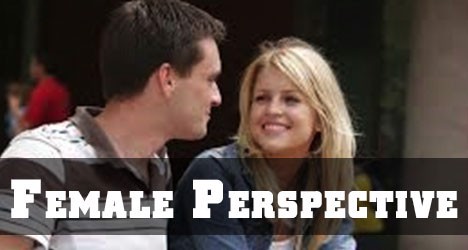Make a psychological note of features you would need in your perfect person. Do you have an image of an attractive, very tall man, with six figures as his income, a distinct wit, a lovely feeling and an Ivy Group degree to circular him out?
Well, I have a link to offer you.
That’s because in really like, as with genies, we only get three desires, says connection professional Ty Tashiro. The more characteristics you choose that are above the common, the reduced the mathematical possibilities that you will discover a coordinate. And three is the falling aspect.
Imagine you have a room of 100 men. If you select mediocrity — the trifecta of regular earnings, looks and size — you will have, mathematically, only 13 suitors out of 100 to select from. Increase your requirements to an eye-catching man at least 6-feet high who creates $87,000, and you are remaining with only one.
Add another feature — crazy, type, even a governmental association — and it becomes mathematically difficult to discover him out of 100 men.
Tashiro, a lecturer at the Middle for Harmful addictions, Character, and Feelings Analysis at the School of Doctor, has run the figures and believes we’re nearing this whole finding-a-mate factor incorrect. He yearnings single men and women to be more mathematical in their way to the “irrational” world of relationship.
“All this hoping has led to a case of looking for everything and getting nothing,” Tashiro creates in his first book, “The Science of Happily Ever After: What Really
Matters in the Pursuit for Sustained Love” (Harlequin). Dating should be “about studying to marijuana out the unwanted characteristics and rethinking our opinions about what really issues in a adoring associate.”
Our fairy-tale perspective of love — 88 % of grownups believe in spirit associates — has provided to the aspect that although 90 % of individuals will get married to in their lives, only three in 10 will discover enduring really like, Tashiro says. (He gets this figure by including disappointed weddings and break ups to the 50 % divorce rate).
When discovering a long-term associate, do not spend your desires, he alerts.
So what should be on your list? Keep attraction off the desk, if you can. Looks are not a forecaster of lovemaking, nor do they link to more satisfied weddings. Actually, there “is no efficient organization between actual attraction and connection fulfillment,” he creates, estimating from his own research.
A research at the School of Tn, which enrolled 82 couples to amount each other person’s attraction (to keep it sincere they also had the study staff amount their hotness factor), corroborates his results. What they discovered was that there was “no connection between either second half’s level of actual attraction and either second half’s connection fulfillment.” The only important organization discovered was that the most actually eye-catching men were least pleased with their weddings.
In inclusion, cash does not a satisfied wedding make — at least over a certain aspect. Funds are important on the low end of the earnings range (which has the biggest divorce prices in the first 10 years of marriage), but there seem to be “diminishing returns” on pleasure in wedding above a economically continuous $75,000 a season.
“Once this $75,000 limit is surpassed, there is no important organization between more prosperity and higher stages of psychological well-being,” Tashiro creates. “There comes a aspect when prosperity becomes associated with public demands and public solitude.”
It seems best, then, to pay attention to discovering someone who can “help you make a family where primary needs are met and there is a low possibility of suffering from financial problems.”
So what is the best personality signal for retaining a adoring relationship? The response is . . . drum move, please . . . agreeableness, a. k. a. “the awesome guy.”
Agreeableness, one of the Big Five character characteristics in the Five Factor Design of human mindset — the others being extroversion, conscientiousness, neuroticism and awareness — explains someone who is “courteous, versatile, relying on, good-natured, supportive, versatile, soft-hearted and resistant.”
Sure, it’s unsexy, but it’s the most efficient indication that your associate is a owner for the lengthy phrase.
One research of 168 associates discovered that “the best aspects for forecasting who would remain wedded, even better than really like, expression of love or negative thoughts, was responsiveness, which is carefully relevant to the feature of agreeableness,” Tashiro creates.
Plus, versatile individuals are often better in bed.
“Men high in agreeableness are not only more likely to be type, but also more likely to keep the libido in existence in connections,” he creates. They are more providing and often more delicate, which creates for better between-the-sheets action.
In other terms, when looking for wedding content, awesome people should complete first. This is similarly true for men looking for women: Niceness beats all.
If you are enjoying the possibilities, it’s best to spend money on a awesome associate instead of a hot or dirty wealthy one.
Even more so, awesome people usually remain awesome. Looks and cash do not come with a long term assurance, while character characteristics (i.e. those Big Five) usually remain continuous over a life-time, according to longitudinal research.
So what is the No. 1 most severe feature for connection sustainability? Sorry, Woodsy Allen and friends: This one is neuroticism, described as those vulnerable to stress, depressive disorders, discomfort, psychological uncertainty and uncertainty.
One research discovered that neurotic associates were more likely to break up with associates with reduced prices of neuroticism “as if neurotics could not take a position their excellent luck.”
Many other research have discovered that neuroticism is the No. 1 forecaster of upcoming connection success — or absence thereof.
“The only varying that recognized gladly associates from those who were sadly wedded and from the two categories that separated was contrariness, which is the varying most carefully relevant to the personality feature of neuroticism,” Tashiro creates.
That’s not all. Openness, though a excellent feature on the outer lining area — harvested, expanded, creative, unique — creates for a connection catastrophe when along with low stages of conscientiousness. This novelty-seeking associate is almost certain to deceive, he creates.
Unfortunately, because of the miracle techniques that really like performs on understanding, we often do not see the tell-tale symptoms.
There’s actually a phrase for this trend: Scientists call it “positive illusory prejudice,” when individuals increase the beneficial character characteristics and upcoming prospective of their associates, in comparison to outside most judges like family, buddies and even unknown people.
Take this startling research performed by David Gottman at the School of California. Couples came to the “Love Lab” and were requested to discuss for 15 moments about “continuing disagreements” and “events of the day” as researchers who had never met the several noticed.
Certain actions — like symptoms and symptoms of defensiveness or anger — were mentioned. With these information, qualified researchers were able to identify whether or not the several would divorce in 10 years with 90 % precision. In another similar research done at Stanford, even inexperienced undergraduates were able to think the couples’ futures trading based on a 15 moment connections with an 81 % precision.
While researchers can see clearly, so many of us are distracted by really like.
So what are we do to?
To effectively fall madly in really like, you need to have audio stages of “liking” and “lusting,” Tashiro creates. It appears to be simple, but keeping both aspects is complex — especially when you take into account attrition prices.
Like and lust reduce over time, but at different prices. According to check out, preference decreases at a amount of 3 percent per season, while lust declines quicker at 8 % per season. Clearly, placing our egg in the like container is a much wiser financial commitment technique, Tashiro says.
Knowing all this — and most of us should — does not stop the aspect that discovering a associate is mostly an “irrational” process. Research and really like are like oil and water, but Tashiro wishes to make the combination a bit more tasty, especially for those looking for long-term really like.
Be clear about our objectives, he says. Are we looking for a fling? A marriage? Do we want balance or a hot affair? Once we know this, move on to the characteristics that we need in a fan. (Remember: No more than three.)
“A grown-up really like tale should not be a tale or a adoring catastrophe, but instead should be contacted as a secret,” he creates. “If the objective is to discover the fact in really like, to search for really like that is real and enduring, then really like cannot be remaining to destiny.”
One factor you can do is to take seriously those beginning red banners, the peccadilloes in our family members we’re certain we can change.
“If you select someone with characteristics that generate you insane or make you sad while you are relationship, then those characteristics will make you insane or sad for many years to come,” he creates. “So you want to select well, because what you see is what you get.”
==========================================================================
Work with a dating coach in field, 1on1, do practice dates and learn how to flirt better.
To request a FREE one on one evaluation, go to: www.NewYorkDatingCoach.com , and mention weekend dating in the contact form or call 646-862-1784
==============================================================================
 646-862-1784
646-862-1784



